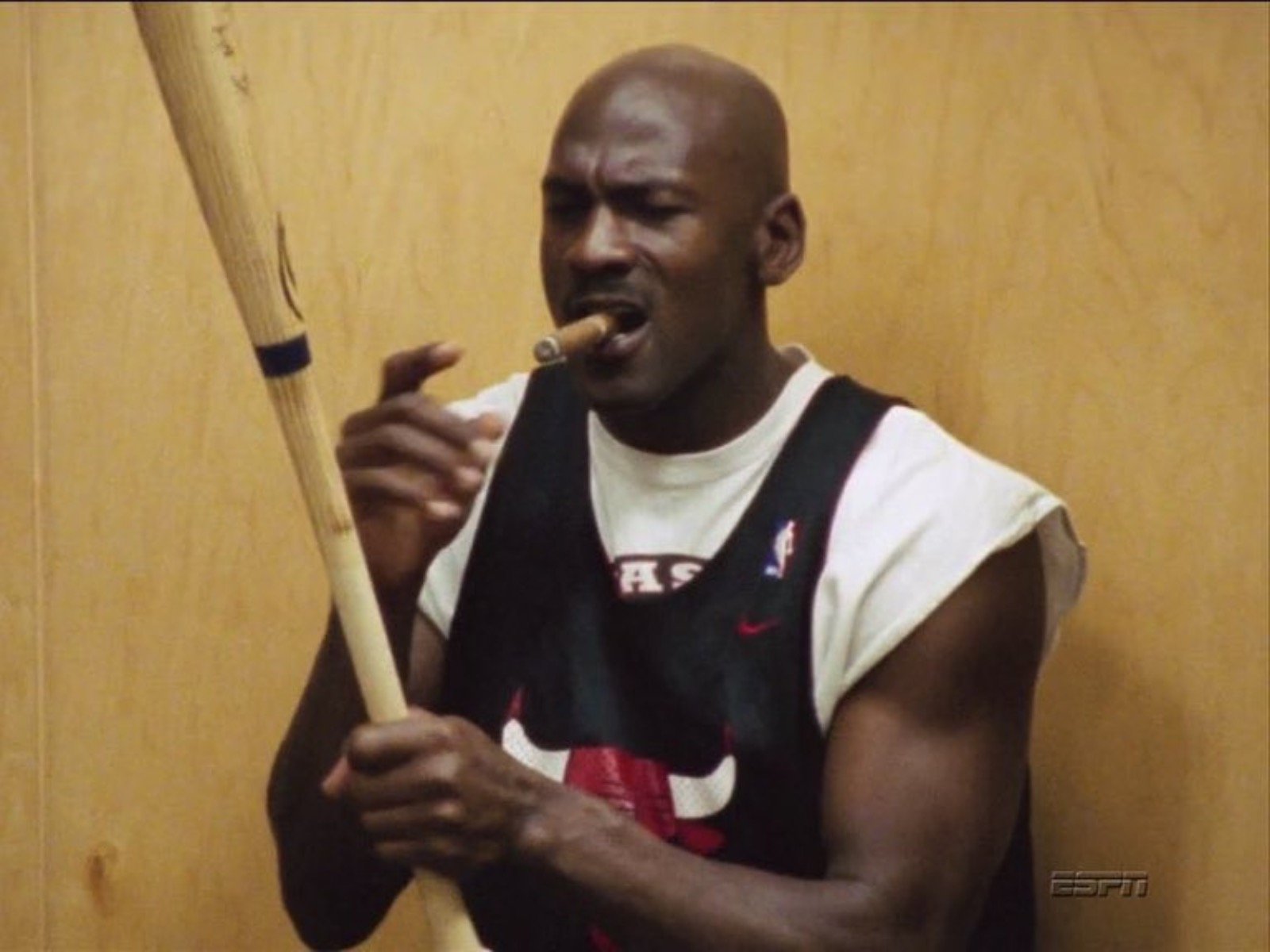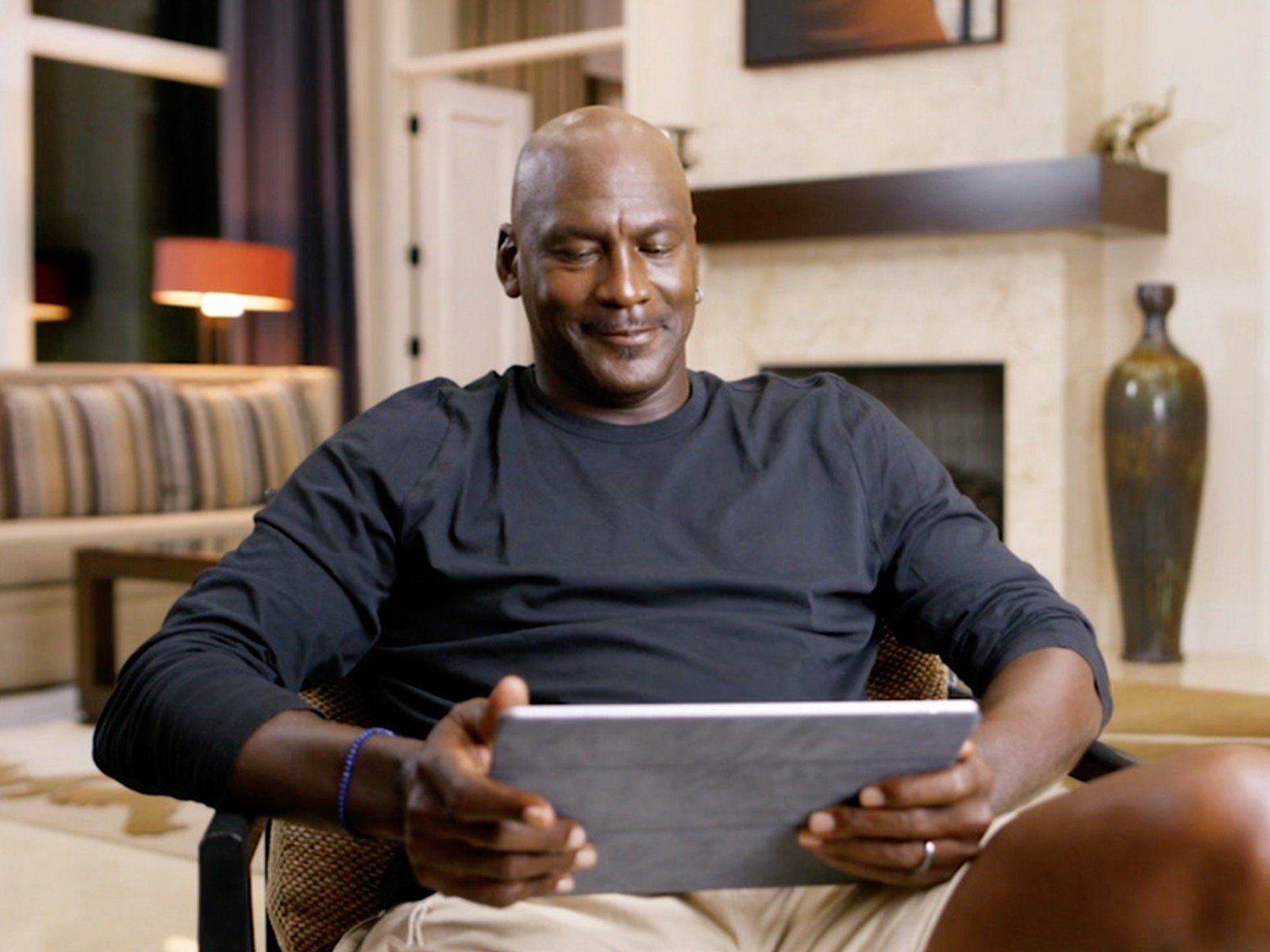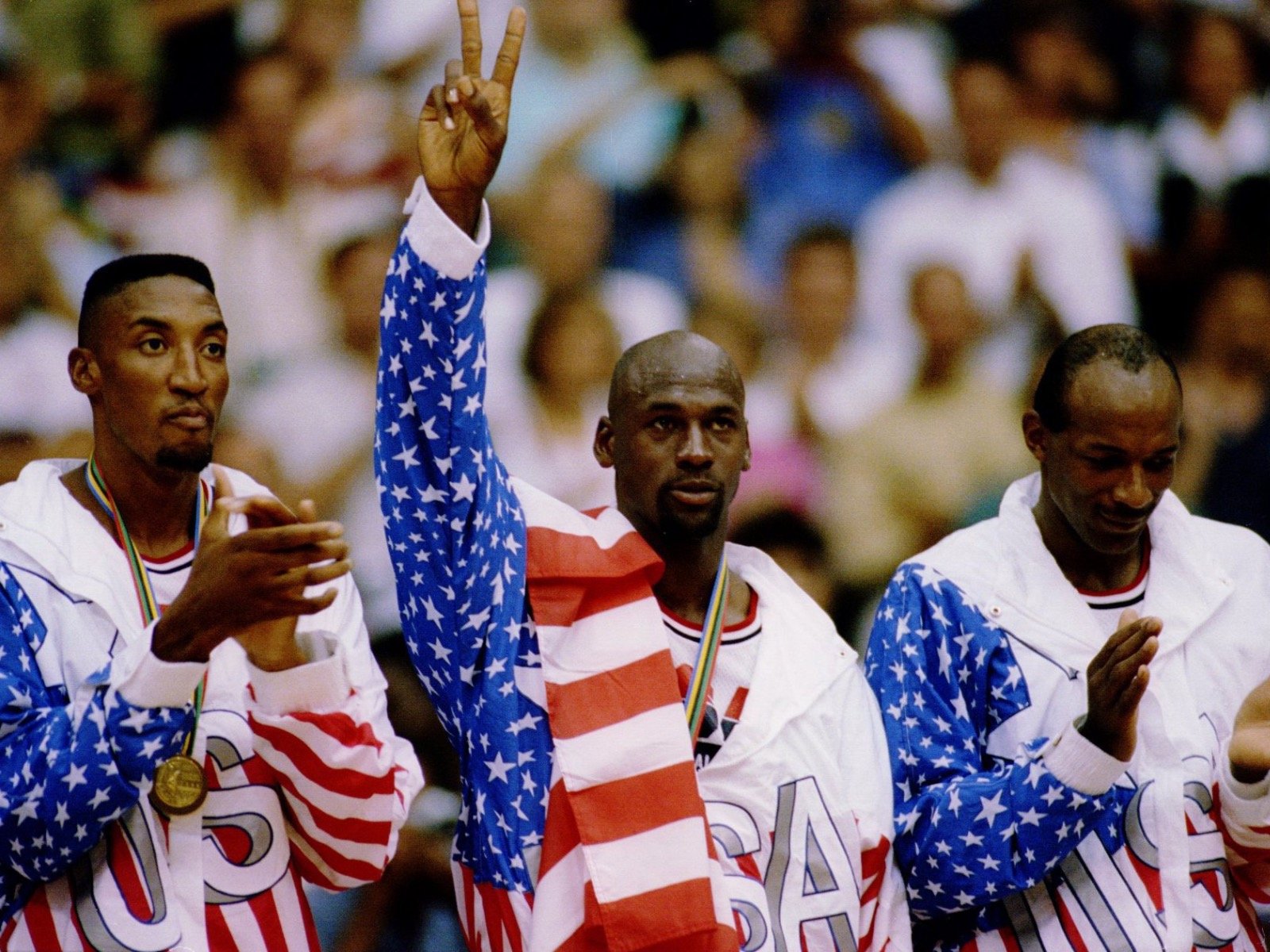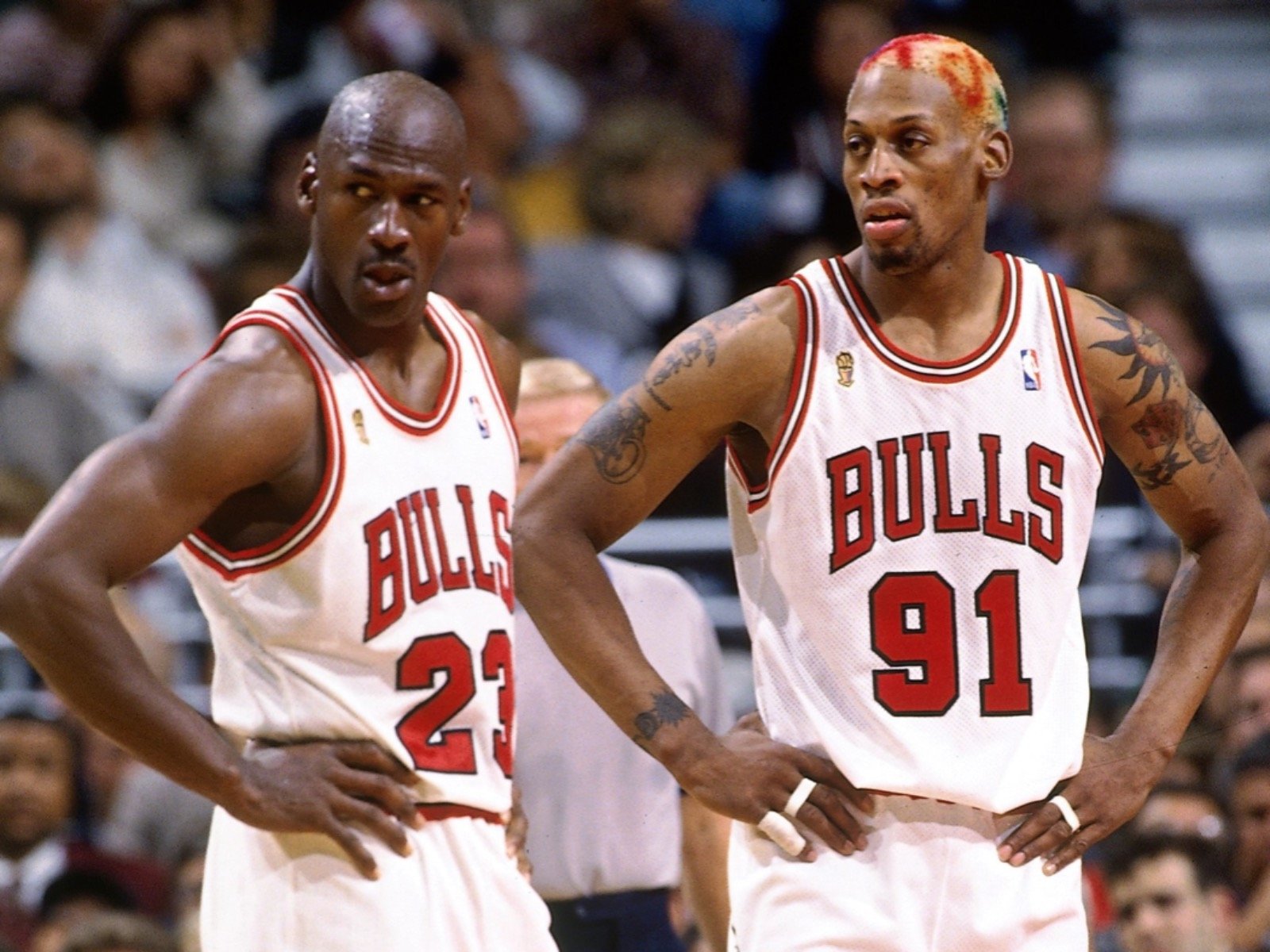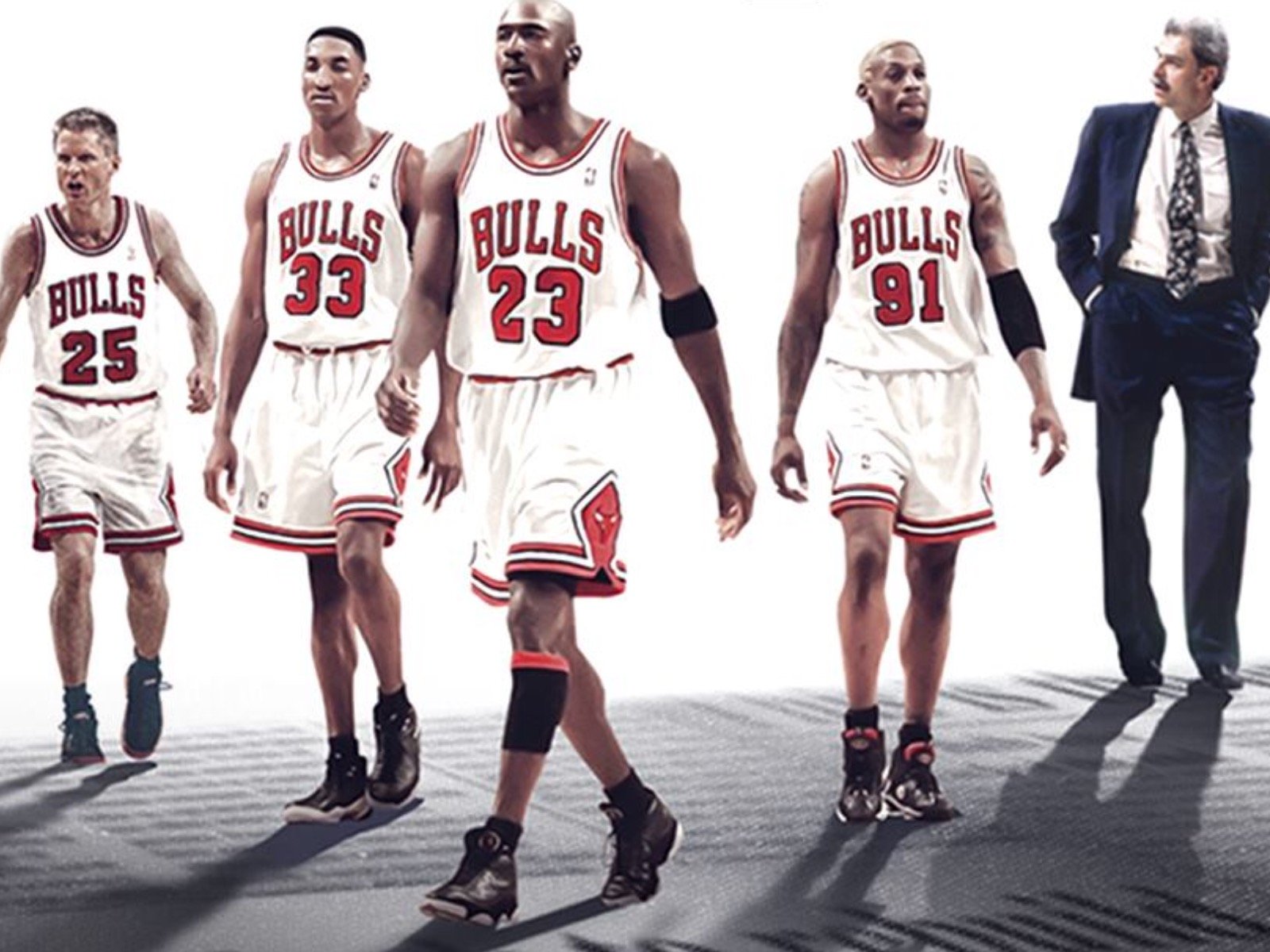Michael Jordan had a rough Sunday night during chapters seven and eight of "The Last Dance" – at least as rough as the MJ-approved ESPN doc will allow.
His father was tragically murdered through the cruelty of fate, with his off-court gambling storylines used as a lazy media scapegoat. He retired from the sport he loved and pivoted to baseball with mixed results, at least certainly by the standard expected of the world's most famous athlete. He returned to basketball, only to be out of form and lose his legs during the Bulls' playoff run – sure, losing to former teammate Horace Grant and the Orlando Magic, but more so losing that godly, untouchable stature he possessed before. The man couldn't even put on his shorts the right way in his debut.
Sure, the two hours ended on triumph (it's still mostly a self-portrait in service of Jordan's mythos, after all) but Sunday night's episodes bothered to dig into the lowest points of MJ's career – and, in the process, became the highest point of "The Last Dance" thus far.
Good timing for me to have mostly praise, because if there's one thing we learned from last night's chapters, it's that you don't want to get on Jordan's bad side. Not that you can really do anything to stop that from happening anyways.
More on that later, though, as the first chapter hones in on Jordan's "lost seasons" after the 1993 Finals. What was a tough season of drama, on the court and even more so off of it with gambling rumors whirling through arenas and tabloids, became an even worse offseason as his father, James Jordan, went missing, only to be discovered senselessly murdered by two strangers in a random roadside robbery.
The unexpected loss obviously shakes the usually unshakeable Jordan, and though he'd discussed the plans the year prior, it clearly pushes him to leave basketball and pursue baseball – as a tribute to his father but also as therapy to escape the pressure cooker of the NBA and the media, which in irresponsible places was trying to pin his dad's death and his departure from the league on his gambling habits. (Because if there's one thing any smart commissioner would definitely do, it's kick his brightest star off his courts, screens, schedules, billboards, advertisements and more, lending his fame over to a completely different sport, all in the name of a "secret suspension." The logic is airtight.)
While the conspiracies are absurd at best and tasteless at worst – and, as expected, the doc doesn't exactly dig into them with a fine-toothed comb – they do lend "The Last Dance" some conspiratorial, true crime mystery energy. But most of all, this chapters does something that the past six episodes rarely have: They make Michael Jordan human. For a moment, instead of a flawless god that makes you feel simply awe or bemusement, Jordan is just a person who's lost his father, who maybe feels a little lost for a moment and who, with the Birmingham Barons, is fighting to earn his place and isn't at the top of the heap. In AA baseball – where he was placed only because the Chicago White Sox affiliate was equipped with the media capabilities necessary to handle MJ's arrival – he is, practically by definition, average: a .202 batter with 50 RBIs and a Pedro Cerrano-esque weakness for breaking pitches that no amount of voodoo can fix.
Meanwhile, the Bulls further bond without their former star, watching the Croatian star they brutalized in the Olympics turn into a worthy piece and Scottie Pippen evolve into a different kind of leader than they had in MJ. Unfortunately, all that development takes a fatal ding in the playoffs, as Pippen takes Phil Jackson's decision to take the ball out of his hands for a crucial shot personally and boycotts from the bench for the key final 1.8 seconds. They won, but despite some emotional postgame speeches trying to mend the ruins, the damage was done, and the Bulls came up short for the first time in four years, digging into the mistake Pippen made and how it deeply impacted the team and his entire legacy.
Pippen arguably takes it worst in that short segment than Jordan does the entire series thus far – even in an episode like Sunday's that cuts a little deeper. Though it shines a fair light on these murky chapters, it breezes through why they were murky, and the interviews work very hard to polish a pretty mediocre baseball line. Yes, going to semi-pro baseball raw after 14 years away from the game and being able to put a ball in play, much less bat around the Mendoza line, is respectable, but "The Last Dance" would have you believe he was practically a future Hall of Famer with his own wing at Cooperstown rather than a standard baseball player who was more air than Jordan when it came to hitting curveballs, and I'd be very interested to hear what minor league players at the time thought of this celebrity taking essentially a tourist trip through their career for a year.
Plus, there's a whole chunk of the hour dedicated to how Jordan was a demanding dictator at practice – especially to newcomer Scott Burrell – that's amusing but also just some self-aggrandizing, cliche Jackass Genius apologia and out of place. At least in that episode.
That aside seems far more at home in the second of Sunday's chapters, which is solely about how Michael Jordan is a destroyer of worlds. Or, as many of his teammates and opponents would call him, an asshole. "The Last Dance," leans into the airing of grievances so hard, into a mind so in desperate need of push and competition, that it becomes almost a brilliant dark comedy, portraying Jordan like death in the "Final Destination" franchise, this bitter force outside of reality watching, judging and plotting how best to slay you in the most excruciating way possible because he just can't allow a defeat to stand.
It sounds outrageous – but that's how it plays, complete with Jordan disappointeldly saying, "I'm supposed to kill this guy." The "this guy" in the sentence is former teammate turned Charlotte Hornet BJ Armstrong, who makes the grave mistake of having a good game against MJ and the Bulls in the playoffs – and the even graver mistake of getting a little emotional about it on the court, celebrating in the faces of the Bulls bench. The next time we see Jordan, he's in the locker room preparing for Game 2 with a cigar and calmly working a baseball bat around. It's honestly a better gangster scene than most gangster movies, menacing and tense and entertaining at the same time as you're not sure if he's prepping for a baseball game, a basketball game or about to break the knees of one of Armstrong's family member. Thankfully, it's the final one – but though his knees remain un-batting practiced, Armstrong's dignity gets clobbered on the court by Jordan in the next game, holding him to a non-factor, seeking him out on offense and wiping him and the Hornets off the face of the earth.
At least Armstrong can say he earned that moment – not so much the case for poor LaBradford Smith, who just made the simple mistake in an earlier season of having a good game against MJ. The world had been told that, walking off the court, Smith told MJ, "Nice game, Mike," an innocuous bit of trash talk but one that Jordan took hard and used as motivation to annihilate the Bullets and Smith the next night, scoring more than Smith's amount in the first half alone. LaBradford Smith was never heard from again – and as for the "Nice game, Mike"? A work of fiction, made up by Jordan for motivational fuel.
Sure, this is all self-aggrandizing, the kind of story that jerks tell in the hopes of defending their jerk-like behavior, that they were assholes in the names of being great.( I think of Steve Wozniak's line from Danny Boyle's biopic "Steve Jobs": "It's not binary; you can be decent and gifted at the same time.") But while "The Last Dance" apologizes as much as possible for MJ's prickliness, it also makes him own his prickliness and issues more than most of the series, talking with his teammates about how he would push them in practice – or punched them, in the case of Steve Kerr – and asking MJ if he believes he lost out on the ability to be called a nice person. More so than before, episodes seven and eight allow Jordan to be a person with bumps, bruises, weaknesses, deep emotional heartache, failures – such as his return to the NBA, losing to the Orlando Magic as his baseball-ready legs give out from a different basketball-level of activity – and struggles beyond those that play nice as PR.
I mean, sure, it's PR, as his failures and fierce behavior turns the Bulls into the best time the NBA's arguably ever seen, but it still forces more answers than usual – and, most importantly, it results in one of the doc's best moments so far: the NBA Finals against the Seattle Supersonics. For one, as a Bucks fan, anything that slanders George Karl and calls him out is fine by me – and Seattle star Gary Payton and "The Last Dance" pull out some serious side-eye about their then-coach's decision to leave the best defensive player in the game, a man literally nicknamed "The Glove" for his defense, off of Michael Jordan. Even more unforgivable, Karl didn't say hi to MJ at a restaurant – which is all the prodding the ruthless star needs. (Just ask poor LaBradford Smith.)
The Sonics somehow managed to make a series out of it, coming back from three games down to take the Finals to a Game 7. According to Payton, it's because he was finally put on Jordan, tiring out the superstar and wearing him down and thinking about how things might have been different if he'd started on him ... only for "The Last Dance" to hilariously smash cut to Jordan watching Payton's interview, with a smirk and a giddy laugh, finding it adorable that Payton thought he was a problem and not just an annoying flea to a grudge-holding god on a quest for vengeance. If there's a funnier edit in TV or film this year, we'll have had a solid year.
No, it wasn't Payton that took the series to seven. Instead, "The Last Dance" nicely brings the night full circle by saying his struggles were because it close to Father's Day and that Jordan overcame the loss of his father, the grief of missing him, by the end – backed up by footage of Jordan howlingly sobbing in the locker room post-game like the audience hasn't seen before, clearly more than just joy pouring out.
That's Sunday night's episodes in a nutshell: MJ as both frail human and inhuman grudge machine, the documentary both brand-ready polished and oddly personal. At least for one night, it wasn't binary; it can be a gifted MJ ad and a decent doc at the same time.
As much as it is a gigantic cliché to say that one has always had a passion for film, Matt Mueller has always had a passion for film. Whether it was bringing in the latest movie reviews for his first grade show-and-tell or writing film reviews for the St. Norbert College Times as a high school student, Matt is way too obsessed with movies for his own good.
When he's not writing about the latest blockbuster or talking much too glowingly about "Piranha 3D," Matt can probably be found watching literally any sport (minus cricket) or working at - get this - a local movie theater. Or watching a movie. Yeah, he's probably watching a movie.

